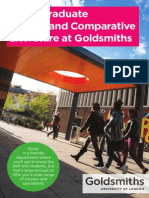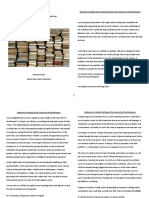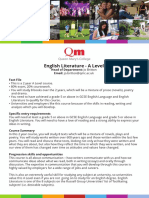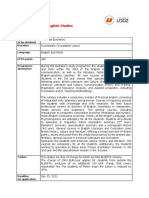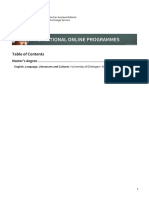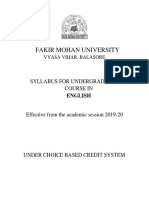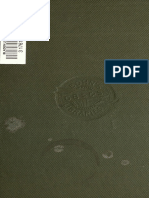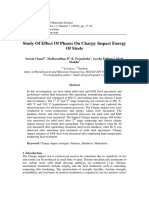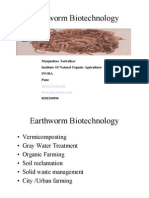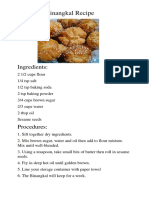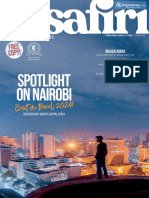BA English (Q300) (Entry Year: 2025)
Key Information
Faculty Accessibility Information
Faculty of Arts and Humanities We shall make reasonable adjustments to ensure
access for disabled students; all applications and
Department
adjustments are considered on a case-by-case
English Language and Literature
basis.
Contact Email for Prospective Students
english@ucl.ac.uk Details of the accessibility of UCL buildings can be
obtained from AccessAble. Further information can
also be obtained from the UCL Student Support
and Wellbeing team.
Qualifications
Qualification on Successful Completion of the
Programme
Bachelor of Arts with Honours (BA)
Mode of Study
Campus at which the majority of the programme is
delivered
London, Bloomsbury
Location of Study
Campus based
Full-time Duration
3 academic years
Part-time Duration
This mode of study is not offered
Modular Flexible Duration
This mode of study is not offered
Page 1 of 5
� Accreditation, Regulation, and Collaboration
Professional Accreditation
This programme is not accredited
Professional accreditation explanatory
text
This programme is not accredited
Programme Description
Programme Description
The first year of the English BA acts as a foundation for the two following years, covering major narrative texts from the
Renaissance to the present, an introduction to Old and Middle English, the study of critical method and literary theory,
and the study of intellectual and cultural sources (texts which influence English literature but which are not in
themselves necessarily classified as such).
In your second and third years, you will study compulsory modules on Chaucer and Shakespeare and choose six
further modules, covering literature from the Old English period to the present day. Students must take at least one pre-
1800 module and at least one post-1800 module. You will also have the opportunity to study American literature,
colonial and postcolonial literature and literature in English from other countries.
Within these compulsory and optional papers, you will work with your tutor and in seminars to focus your reading and
essay writing around topics that interest you within the parameters of your chosen modules. The degree thus combines
breadth and depth with individual freedom to explore a wide variety of writers and ideas.
The flexible second- and third-year programme is deliberately structured to give you maximum freedom to choose
modules in whichever combination suits you.
Modules are assessed by regular tutorial essays and final examinations at the end of the second and third years (one
examination per year may be substituted for a coursework essay). During the third year, you will also independently
research and write a longer essay about a topic of particular interest.
Typical contact hours and hours of self-directed study
22% of a student's time during the two teaching terms will be spent in lectures, seminars and tutorials, and the
remainder in independent study and writing essays for the ten tutorials, which take place across Terms 1 and 2. In
Term 3, students will be preparing for and sitting examinations.
Graduate Destinations
Traditional career paths for English graduates include publishing, journalism and teaching, but graduates are also
sought after by the civil service, local government, finance, business, the media and film.
According to the Graduate Outcomes survey*, some career destinations in recent years include the Evening Standard,
the Treasury, Natwest, KPMG and Waterstones Booksellers.
A number of our graduates go on to further study in the UK and elsewhere, pursuing Master's and PhD programmes as
well as postgraduate courses in other related subjects
*Graduate Outcomes survey carried out by the Higher Education Statistics Agency (HESA), looking at the destinations
of UK and EU graduates in the 2017 - 2021 cohorts.
Placement Information
No data available
Fieldwork Information
No data available
Page 2 of 5
�Learning and Assessment
Types of Assessment Undertaken on the Programme
Most modules are assessed by examination, however for up to two modules you may submit longer essays in place of
a examination. In addition, throughout the three years of the programme you will receive a mark based on your tutorial
essays at the end of each term. You will also be assessed in your third year by a 6,000-word research essay on a topic
chosen by you with guidance from your tutor.
Teaching and Learning Methods/Strategies
We teach in lectures, seminars and tutorials. Our one-to-one tutorial teaching is unique among English departments in
the UK. Fortnightly tutorials provide the opportunity to discuss your individual written work and academic progress with
your tutor, as well as raise any concerns or queries about your modules or other matters.
Page 3 of 5
�Modules
Please note that the list of modules given here is indicative. This information is published a long time in
advance of enrolment and module content and availability is subject to change. Modules that are in use for the
current academic year are listed for further information. Where no listing is present, further information is not
yet available. Non-condonable modules are modules that a student must pass in order to complete their
programme.
Details of any modules which are non-condonable
Module code Module title
ENGL0002 Narrative Texts/Intellectual and Cultural Sources
Introduction to Medieval Literature (Old and Middle
ENGL0003
English)
ENGL0004 Criticism and Theory
ENGL0045 Research Essay
ENGL0046 Course Assessment
Compulsory modules
Year
Module code Module title
taken
ENGL0002 1 Narrative Texts/Intellectual and Cultural Sources
Introduction to Medieval Literature (Old and Middle
ENGL0003 1
English)
ENGL0004 1 Criticism and Theory
ENGL0006 2 Chaucer and his Literary Background
ENGL0008 3 Shakespeare
ENGL0045 3 Research Essay
ENGL0046 3 Course Assessment
Indicative optional modules
Year
Module code Module title
taken
ENGL0017 2 The Victorian Period
ENGL0021 2 Old English Literature I
ENGL0033 2 Middle English Literature I
ENGL0037 2 The Modern Period I
ENGL0041 2 Literary Linguistics
ENGL0010 3 Renaissance Literature
ENGL0012 3 Critical Commentary and Analysis
ENGL0013 3 The Seventeenth Century
ENGL0015 3 The Romantic Period
ENGL0017 3 The Victorian Period
ENGL0019 3 American Literature to 1900
ENGL0021 3 Old English Literature I
ENGL0023 3 Old English Literature II
ENGL0025 3 History of the English Language
ENGL0027 3 Modern English Language
Literary Representations and the History of
ENGL0032 3
Homosexuality
ENGL0035 3 Middle English Literature II
ENGL0037 3 The Modern Period I
ENGL0039 3 The Modern Period II
ENGL0041 3 Literary Linguistics
ENGL0043 3 Eighteenth-Century Literature
ENGL0083 3 Colonial and Postcolonial Literatures
Page 4 of 5
� Admissions
Additional Costs to Students
While the department strives to keep additional costs low, students may incur expenses such as books,
stationery, printing or photocopying. Books and journal articles are usually available via the UCL library (hard
copies or via e-journal subscriptions).
Support Available to Cover Additional Costs
No data available
Last Approved
This Programme Summary was last approved on 25/Jan/2024
Page 5 of 5
